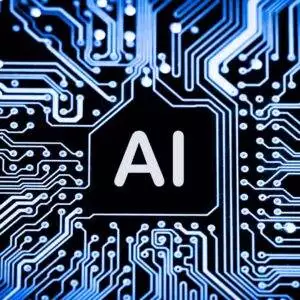From Data to Decision: Excel in Data Science and Big Data Technologies
₹15,990.00
Data science and big data are interdisciplinary fields, and individuals from various backgrounds can learn and excel in these domains. While a background in computer science, mathematics, or statistics can provide a solid foundation, it’s important to note that individuals from other domains can also transition into data science and big data with the right training and skills. Here are some backgrounds and domains from which people can learn data science and big data:
- Computer Science and Engineering: Individuals with a background in computer science, software engineering, or related fields often have the foundational programming skills and knowledge of algorithms and data structures that are valuable in data science and big data.
- Mathematics and Statistics: A strong background in mathematics and statistics provides a solid foundation for understanding the mathematical concepts behind machine learning algorithms, statistical modeling, and data analysis techniques.
- Physics and Natural Sciences: Individuals with a background in physics or other natural sciences often possess analytical thinking skills and experience working with complex data, making them well-suited for data science and big data roles.
- Economics and Finance: Professionals from economics and finance backgrounds often have experience in analyzing large datasets, econometrics, and financial modeling, which are relevant skills in data science and big data.
- Business and Marketing: Individuals with a background in business or marketing can leverage their domain knowledge to derive insights from data and make data-driven decisions. They may also have experience in customer segmentation, market analysis, and data-driven marketing strategies.
- Healthcare and Life Sciences: Those with a background in healthcare, biology, or life sciences can apply their domain expertise in data science and big data to areas such as clinical research, genomics, personalized medicine, and healthcare analytics.
- Social Sciences: Professionals with a background in social sciences, such as sociology, psychology, or political science, can leverage their understanding of human behavior and societal trends to analyze social data and conduct research using data science techniques.
- Manufacturing and Engineering: Individuals with a background in manufacturing or engineering can apply data science and big data techniques for quality control, predictive maintenance, supply chain optimization, and process improvement.
In live instructor led online mode with a commitment of 2 hours per day (assuming 5 days classes per week), the estimated duration will be 2 months(80 hours) to cover the curriculum as well as project work. Please note we are counting on your consistency , focus and dedication throughout the learning journey to help you maximizing your knowledge acquisition and skill development.
Hourly breakdown of the curriculum :-
- Foundational Concepts: Approximately 10 hours.
- Machine Learning and Predictive Modeling: Around 22 hours
- Big Data Technologies and Processing: Approximately 10 hours
- Advanced Topics in Data Science: Around 10 hours
- Real-Time Projects: Varies depending on complexity and scope, approximately 28 hours
Remember again , it is crucial to actively engage in the learning process i.e. completing assignments on time , allocating additional hours (beyond class) for self study and practice , interacting regularly with trainer in class , participating in Q/A sessions can also enhance the learning experience and ensure a comprehensive understanding of the curriculum.
Also note we are very flexible in terms of duration of the training. If an individual choose to join twice on certain topics for a deeper understanding – we will allow that and allocate him/her in our multiple batches . But in that case total timeline of the course for that student will be extended accordingly.
Job opportunities in data science and big data are expanding rapidly, offering attractive salaries and career growth potential. Here are some of the exciting roles you can pursue after completing our training program:
- Data Scientist: Utilize your expertise in statistical analysis, machine learning, and data modeling to extract insights and drive data-driven strategies. Estimated Salary for entry level ₹8-12 lakhs per annum. If you are more experienced then you can secure upto 14 lakhs.
- Big Data Engineer: Design and implement large-scale data processing systems, working with technologies like Hadoop, Spark, and NoSQL databases. Estimated Salary: ₹10-15 lakhs per annum.
- Machine Learning Engineer: Develop and deploy machine learning models to automate processes, improve predictions, and enhance business operations. Estimated Salary: ₹9-13 lakhs per annum.
- Data Analyst: Analyze and interpret data, transforming raw information into meaningful insights that guide decision-making. Estimated Salary: ₹6-10 lakhs per annum.
- Business Intelligence Analyst: Create visually compelling dashboards and reports, providing actionable insights to stakeholders for strategic planning and performance evaluation. Estimated Salary: ₹7-11 lakhs per annum.
- Data Architect: Design and manage data systems, ensuring scalability, security, and efficient data flow within an organization. Estimated Salary: ₹12-18 lakhs per annum.
These are just a few of the many career paths open to data science and big data professionals. As the demand for these skills continues to soar, the potential for career advancement and high earning potential is tremendous.
Join our Data Science and Big Data Training program today and embark on a transformative journey to become a sought-after expert in this thriving field. Unlock limitless career opportunities and shape the future of data-driven decision-making.











Reviews
There are no reviews yet.